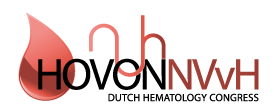Patient-reported outcomes among patients with haematologic malignancies treated with chimeric antigen receptor (CAR) T-cell therapy or bispecific T-cell engagers: A systematic literature review.
Chimeric antigen receptor (CAR) T-cell therapy and bispecific T-cell engagers (BiTEs) demonstrate impressive response rates and survival in patients with relapsed or refractory haematologic malignancies. However, they can cause serious toxicities, such as cytokine release syndrome (CRS), neurotoxicity and infections. To better understand the impact of cancer treatments as experienced by patients, patient-reported outcome measures (PROMs) are increasingly used in clinical research and routine care. Their importance has also been acknowledged by the Food and Drug Administration and the European Medicines Agency. To obtain a better understanding of the use and outcomes of PROMs in patients treated with CAR T-cell therapy or BiTEs, we are conducting a systematic literature review with the aim of identifying (1) which PROMs (and domains) were investigated, (2) at which timepoints PROMs were used and (3) which PROM domains were affected most.
Systematic searches were conducted in the PubMed, EMBASE, and Web of Science databases between inception and May 2024. PRISMA guidelines for systematic reviews were followed. Search terms included “patient reported outcome measures”, “quality of life”, “symptom burden”, “adoptive immunotherapy”, “CAR T-cells” and “haematologic neoplasms”. Original articles or abstracts were included if they reported PROM data of adult patients with haematologic malignancies treated with CAR T-cell therapy or BiTEs. Reviews, laboratory or in vitro studies, qualitative studies, non-original articles, publications of study protocols or texts written in languages other than English and Dutch were excluded. Risk of bias assessment was performed at study and outcome level.
The search yielded 1,474 references of which 107 were selected for full-text screening. Of these, 32 full-text articles and 40 abstracts met the inclusion criteria. Twenty-six full-text articles and 29 abstracts investigated the effects of CAR T-cell therapy and 6 full-text articles and 11 abstracts investigated the effects of BiTEs. Based on full-text articles, 26 different PROMs were used, of which the EORTC QLQ-C30 (n=15), EQ-5D (n=15) and FACT-G (n=10) were the most frequently used. PROM administration timepoints and PROM score data will be extracted and reported and will be presented at the DHC.
Currently, studies in CAR T-cell therapy and BiTEs mainly use general PROMs. These PROMs may not capture all therapy-specific issues, including issues related to neurotoxicity, infections and CRS, and therefore likely underestimate the true quality of life (QoL) impact. As no QoL instrument has been developed for patients treated with CAR T-cell therapy or BiTEs, collaborators from six countries, organised within the European Organisation for Research and Treatment of Cancer (EORTC) Quality of Life Group, are currently developing a health-related QoL module for these patients, of which this study is part.

